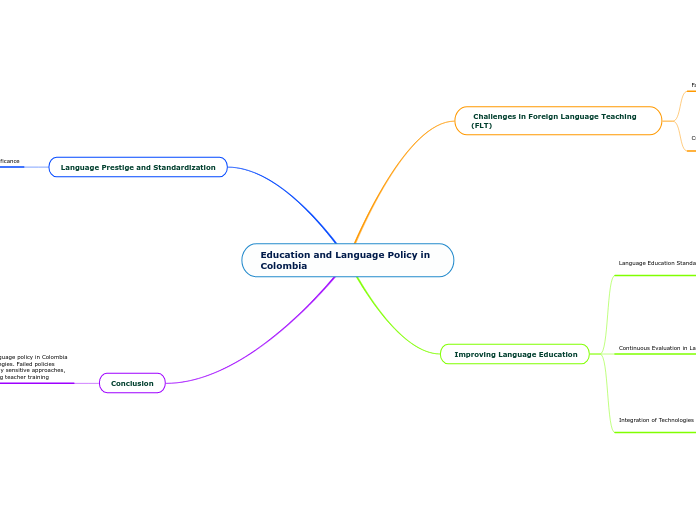Education and Language Policy in Colombia
Challenges in Foreign Language Teaching (FLT)
Failed FLT Policies
Examination of previous language policies that did not yield desired results.
Analysis of reasons for their failure, including social, cultural, and educational factors.
Curricular Process
Exploration of the process of designing language curricula.
Highlighting the role of government agencies and educational institutions.
Addressing challenges related to outdated curricula and the need for modernization.
Improving Language Education
Language Education Standards
Examination of language proficiency standards and their importance.
Discussion on the alignment of standards with international frameworks.
Impact of standardized testing on language learning outcomes.
Continuous Evaluation in Language Learning
Exploration of ongoing assessment methods in language education.
Benefits of continuous evaluation for both students and teachers.
Implementation challenges and strategies for effective evaluation.
Integration of Technologies in Language Teaching
Discussion on the role of technology in modern language education.
Examples of technology tools, such as language learning apps and online resources.
Addressing the digital divide and ensuring equitable access to technology.
Language Prestige and Standardization
Language Prestige and its Significance
Language Prestige and its Significance
Implications of Standardizing Language Learning
Conclusion
the complexities of education and language policy in Colombia highlight the need for adaptable strategies. Failed policies underscore the importance of culturally sensitive approaches, while updating curricula and enhancing teacher training
